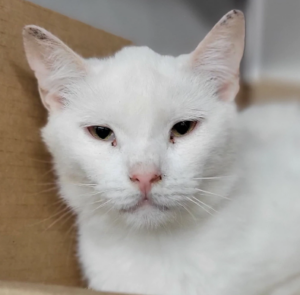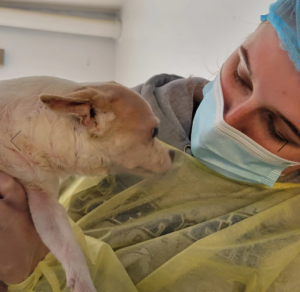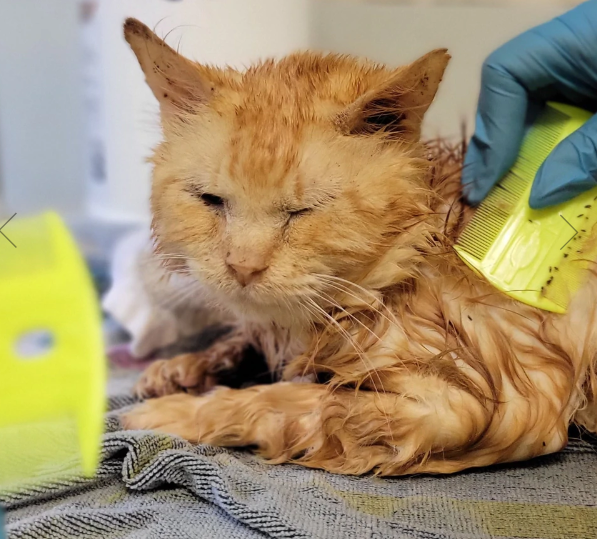The BC SPCA has seized 120 cats and three small dogs from a property in Fort St. James.
“The entryway and hallway to the bedrooms were covered in layers of feces and the entire trailer was very hot and filled with an overwhelming ammonia smell due to the build-up of urine,” says Eileen Drever, senior officer for protection and stakeholder relations for the BC SPCA.
“The feces and urine were so thick that boot covers were pulled off within a couple of steps due to the stickiness.”

According to the BC SPCA many of these animals were emaciated and suffering from respiratory infections, extreme flea infestations, urine scald, eye infections, dental issues, ear mites and wounds, and were being kept in filthy and unsafe conditions.
“We can take care of their physical ailments, but these animals have obviously suffered psychologically.” Drever said.
Drever added that most of the cats were hiding in cupboards, and under appliances and furniture in the trailer.
“No water was present for any of the animals. Some dry cat food had been scattered on the floor, but the food was contaminated with urine and feces,” says Drever.
“Many of the cats appeared very hungry and came up to our officer upon initial entry and immediately began eating the food that was offered.” She notes that many of the cats were having difficulty breathing.
The BC SPCA said the three chihuahuas who were seized are being treated for dental disease, hair loss, and grooming issues.

In addition to the 123 animals seized from the Fort St. James property, the BC SPCA located 130 deceased cats in freezers behind a trailer where the same individuals had resided in Vanderhoof.
Drever added the BC SPCA’s animal protection officers have been responding to many large-scale cases like this in recent months.
“This is not normal, and it’s quite disturbing,” Drever said.
“It’s still early on our investigation with these 123 animals, but our primary concern is for the animals, but there’s also concern for the people as well, because no one in their right mind would keep animals like that.”
The seized cats and dogs are being cared for at SPCA shelters and will continue to receive ongoing veterinary treatment.
“It’s very stressful for staff to care for these animals around the clock,” Drever said.
“We’ll give them 150% and keep our fingers crossed that they’ll all survive.”
Drever said anyone who is interested in helping could foster an animal to help make space for new animals coming in.
Something going on in the Prince George area you think people should know about?
Send us a news tip by emailing [email protected].






